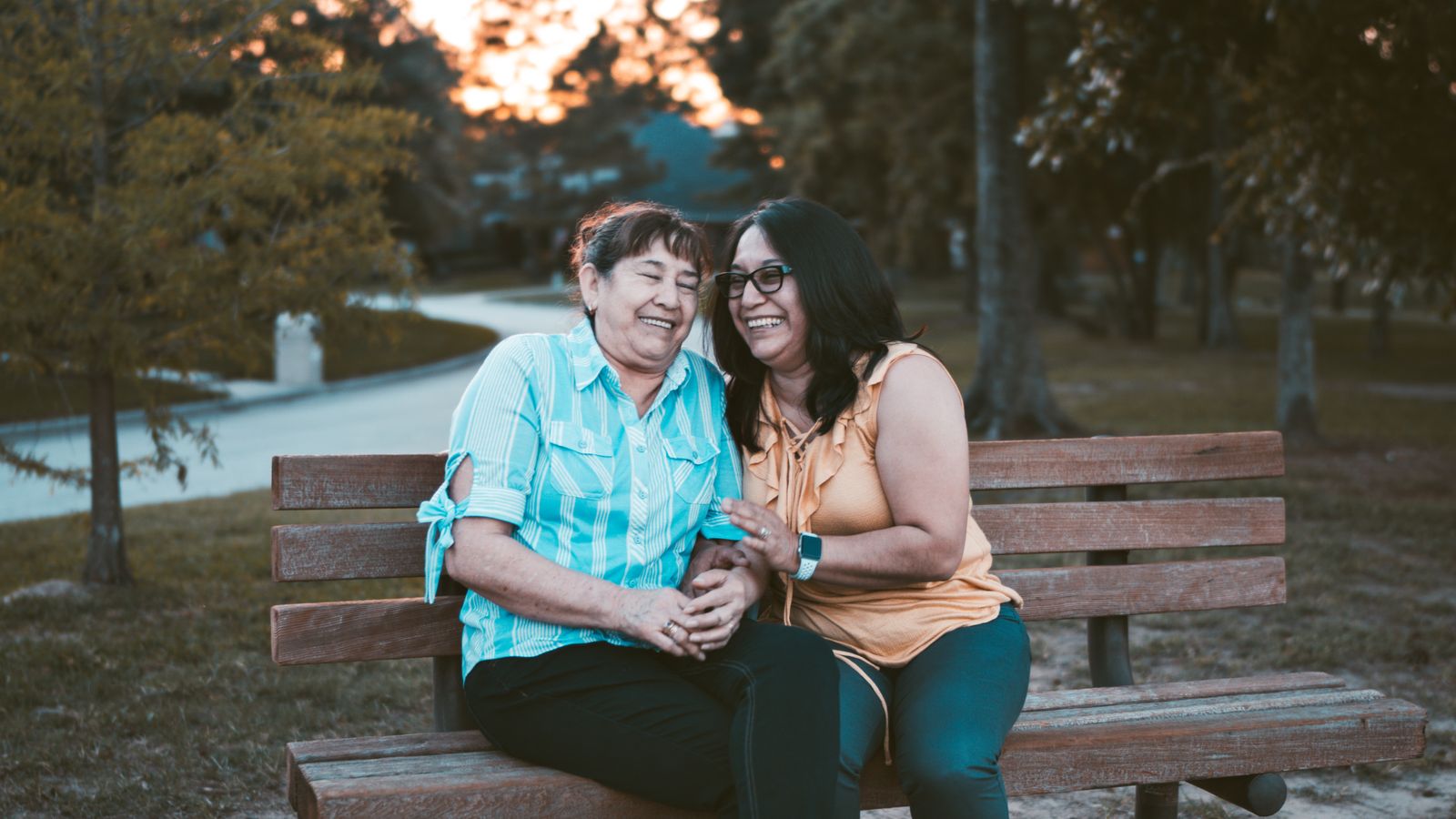BUSSW Researchers Link Religious Coping & Mental Health in Latino Alzheimer’s Caregivers

Despite the fact that the aging Latino population will reach 20% of older Americans by 2050, many Latino elders and their families are not getting healthcare services that reduce their risk or manage dementia. In an effort to better guide healthcare providers’ interactions with Latino patients and families, BU School of Social Work Professor Judith Gonyea and PhD Candidate Arden O’Donnell (PhD’21) have published a study that illustrates a clear connection between Alzheimer’s Disease caregivers who use religious coping mechanisms and their mental health.
Their study shows that not only do Latino Alzheimer’s Disease (AD) caregivers encounter unique barriers to health care, but that a better understanding of religious coping could help health care providers prevent negative side effects of AD caregiving. “When healthcare practitioners are culturally competent, they understand that culturally-bonded beliefs, values, and preferences influence how health, illness and health care messages are heard and interpreted,” the authors explain. “They can use this knowledge to provide more appropriate and effective care.”
Cultural Barriers in Latino Healthcare
“Caregiver studies show that the chronic stress associated with this role can have deleterious effects on individuals’ physical health and cause psychological distress,” say the authors. “For Latinos, barriers to quality health care are not only about the lack of insurance, language, and immigration status, but also about cultural insensitivity which can lead to disappointment, mistrust, or avoidance of the formal healthcare system.”
One of these barriers lies in how Latino patients and families’ beliefs are treated by healthcare practitioners. “Latino AD caregivers may delay or avoid seeking professional assistance, as well as prematurely end treatment, due to concerns that healthcare practitioners will fail to treat their religious or spiritual values with dignidad (dignity) and respecto (respect),” the authors explain. By helping health care practitioners respect and interact with all aspects of a patient’s or caregiver’s identity, they can remove these barriers.
Religious Coping’s Effect
Research on religion’s effect on caregiver health identifies religious coping as either positive or negative. In this study, positive religious coping included the beliefs:
- I think about how my life is part of a larger spiritual force (search for spiritual connection)
- I work together with God as a partner to get through hard times (collaborative
- religious coping)
- I look to God for strength, support and guidance in crises (seeking spiritual support)
And the negative beliefs:
- I feel that stressful situations are God’s way of punishing me for my sins or lack of spirituality (punishing God reappraisal)
- I wonder whether God has abandoned me (spiritual discontent)
- I try to make sense of the situation and decide what to do without relying on God (self‐directed religious coping)
These findings were consistent with other studies that showed religious coping’s negative beliefs were connected to poor caregiver outcomes: “Caregivers who questioned God’s power, perceived God punishing them, or felt abandoned by God reported greater levels of depression and anxiety,” the authors found. “The results suggest that caregivers experiencing religious distress may feel overwhelmed and view a more hopeless future.”
While the study showed a relationship between negative religious coping’s effect on the caregiver’s mental health, it did not uncover a relationship between wellness and positive religious coping. “Religious coping is multidimensional and its positive and negative dimensions exert unique effects on Latino caregivers,” say the authors. This study hopes to add to growing research encouraging health care practitioners to respect and better understand Latino patients’ religious beliefs.
Future Research & Action
“The Latino population is not monolithic,” the authors stress. “It includes diverse cultures, nationalities and races and, even within specific cultural subgroups, there is variation in health beliefs and practice norms based on factors such as education and social class.” Considering this diversity, Gonyea and O’Donnell encourage researchers to conduct more qualitative, mixed method, and longitudinal studies that will paint a better picture of Latino patient and family health care needs. “Given the growing diversity of the nation’s population and the shifting religious landscape in the United States, there is a need to re‐examine the conceptualization and measurement of both religious and spiritual coping.”